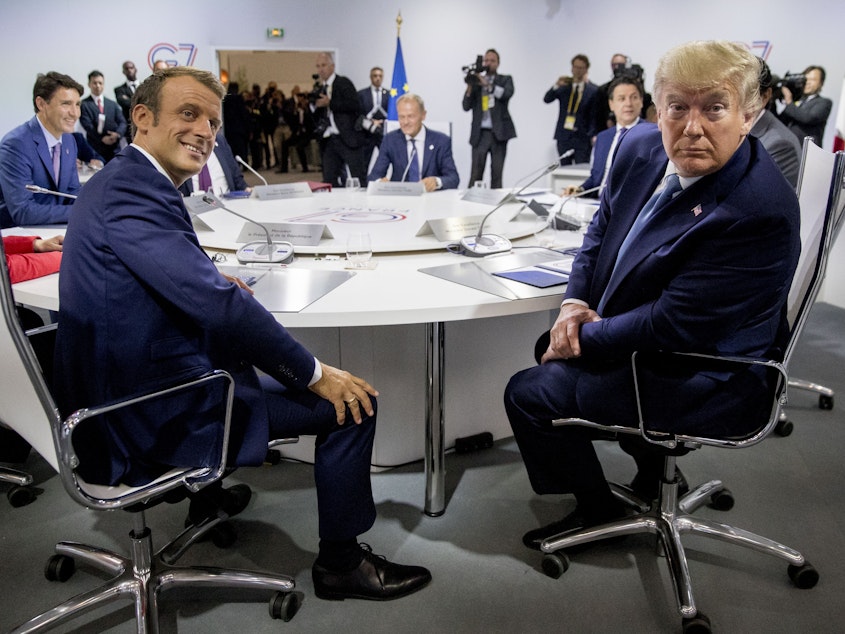Trump Walks Back Statements On China; White House Walks Them Forward

President Trump is meeting with his counterparts at the G-7 summit in France, where he walked back previous statements on trade with China.
On Friday, Trump hiked tariffs on Chinese imports and threatened to invoke a 1977 act authorizing the president emergency powers to force U.S. businesses out of China.
On Sunday in Biarritz, France, Trump affirmed that he has the right to force American companies out of China but said, "I have no plan right now. Actually, we're getting along very well with China right now. We're talking."
Asked if he had second thoughts about tariffs on Chinese goods, Trump said, "Yeah, sure, why not? Might as well. Might as well. I have second thoughts about everything."
He also told reporters that allies were not pressuring him on trade with China. "I think they respect the trade war," Trump said. "I can't say what they've been doing to the U.K. and to other places, but from the standpoint of the United States, what [China] has done is outrageous."
Sponsored
About five hours after Trump's statements, White House press secretary Stephanie Grisham said reporters were misinterpreting them.
"This morning in the bilat with the UK, the President was asked if he had 'any second thought on escalating the trade war with China'. His answer has been greatly misinterpreted. President Trump responded in the affirmative - because he regrets not raising the tariffs higher," Grisham said in a statement emailed to reporters.
The G-7 summit is a meeting of the world's biggest economic powers, including the United States, Germany, France, Japan, Italy, Canada and the United Kingdom.
Trump met Sunday with Britain's new prime minister, Boris Johnson, who says he will withdraw Britain from the European Union by the scheduled date of Oct. 31, with or without an agreement with the EU.
A trade deal with the U.S. would replace weakening trade ties with the EU and attempt to shore up Britain's economy. Trump called Johnson "the right man" to deliver Brexit and said he planned to form "a very big trade deal" with Britain.
Sponsored
On Sunday, Trump also said he is working on "a very big deal" with Japan, saying, "It will be one of the biggest deals we've ever made with Japan."
Iranian Foreign Minister Mohammad Javad Zarif arrived in Biarritz on Sunday, but his spokesman said he did not plan to meet with U.S. officials. NPR's Jake Cigainero reports that French officials say Zarif was invited to meet with his French counterpart, Jean-Yves Le Drian, after meeting with President Emmanuel Macron in Paris just days ago.
Macron has tried to take the diplomatic lead in saving the 2015 Iran nuclear agreement, which Trump pulled the U.S. out of in 2018. Tensions between the U.S. and Iran have risen in recent years over Iran's nuclear program and its role in Syria and other conflicts in the Middle East. [Copyright 2019 NPR]
